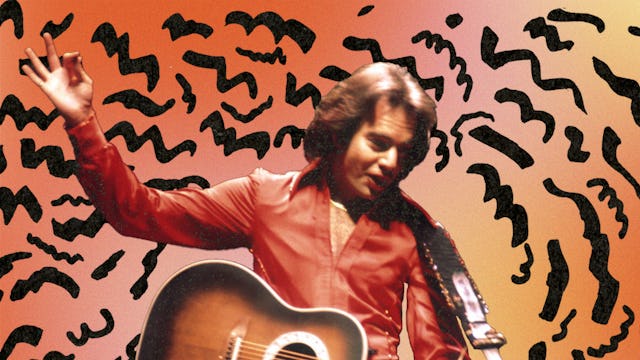As the right continues to to target Jewish people, Neil Diamond’s hit song from the film The Jazz Singer inspires unity — even in its own schmaltzy way.


Neil Diamond’s “America” is a corny, yet essential tool to fight antisemitism
Hits Different is a new series that takes a second look at a TV show, song, album, episode, movie, scene, or clip from the past that, in our current context, just hits different. What was the world like when you first considered this piece of culture, and what’s changed? Does it hold up as timeless, or is it better left to the past? Pitch us at features@mic.com.
I don’t remember when I first heard Neil Diamond’s chesty lounge-rock classic “America” from his 1980 album The Jazz Singer. But I remember when I first thought about it. I was around 10, waiting in the lobby of our local Jewish Community Center (JCC) for my parents to pick me up from Sunday morning activities. A slightly older activity-goer, also presumably waiting for pick-up, button-holed me and arbitrarily began to pontificate about how everyone should have a song they had memorized all the way through. To my considerable mortification, he proceeded to demonstrate while strolling around the room with an air of faux casual cool. “Far! We’ve been traveling far! Without a home, but not without a star!”
I don’t think I knew at the time that the song was about the Jewish immigrant experience. I did know, though, that my insistent interlocutor was, in the unyielding social calculus of middle-school, slightly more nerdy than I was. And I also knew, in a dim way, that the song was corny Americana bathos.
“They’re coming to America!” the slightly-more-nerdy kid warbled, undaunted by my silent prayers to a not-very-well-defined deity. He sang of oceans of freedom, but what I heard was a great beige wave, ready to drown me in an unhip unfurling of musical theater bombast. That kid was not me, the song was not my song, and I was going to follow no particular star right out of the JCC and toward some less humiliating identity.
You can’t escape yourself, though. And, relatedly or not, you can’t escape Neil Diamond. Over the years, I discovered that I did in fact know many of the lyrics to “Sweet Caroline,” “Heartlight,” and other AM radio staples. I married a Kentucky woman who liked that song about a Kentucky woman, and Diamond in general, even if her childhood guitar hero Joe Perry wouldn’t exactly approve. At some point, I reluctantly admitted to myself that Diamond’s songs sung blue were in fact the music of my people, in the great easy-listening tradition of Art Garfunkel, Bert Bacharach, Kenny Gorelick, Billy Joel, and Robert Zimmerman’s uncomfortably Diamond-adjacent “Just Like a Woman.”
Part of learning to love Diamond has been growing into my own middle-aged blandness. If nerdiness was out to get me, well, I had seen its face and become a believer. Neil Diamond was the soundtrack for former JCC kids who intermarried and stayed forever in blue jeans — not as a working-class rebellion, but simply because they were too lazy to dress up. That was me, more or less. Might as well hum along.
Recently, though, “America” has started to feel less like capitulation and more like over-carbonated defiance. Opposition to immigration wasn’t at the center of the GOP agenda in 1980, when Diamond released the song. Kids in school did occasionally throw pennies at me (because Jewish people are greedy, get it?); but overall I was able to hold my Jewish identity fairly lightly, and I assumed that things would get better over time. “America” was corny because it celebrated an uncontested consensus. The United States was a land of opportunity for Jewish people and immigrants. Everyone will sing to that.
Now, though, it’s clear that they won’t. On social media, people often tag me in pictures of my face with some sort of snarky sneer — because Jewish people are ugly, get it? And even in 2012, when Diamond performed “America” at the Greek Theater, “They’re coming to America…today!” felt like spitting a faceful of glitter in Mitt Romney’s smug portfolio.
During that live concert, Diamond introduced the song by projecting an image of his grandmother, who came to the U.S. from Russia, on two giant movie screens. “She and her daughter Rose inspired me to achieve everything that I’ve achieved in my life…this one’s for her,” he said. Then he began, overemoting through the lyrics, big New York Jewish hand-gestures gesturing; while behind him a chorus of multi-racial middle-aged female singers in tight slinky dresses swayed and clapped, and a giant brass-led band emitted walls of muddy cheese.
Or I should say, walls of muddy, antifascist cheese. Donald Trump has said multiple times that Jewish people should be loyal to Israel. He separated children from their parents at the Mexican border to try to terrify, torture, and discourage people who wanted to start a new life in the U.S. Against this cramped, cruel, ethnonationalist vision of closed borders and pure genetic destiny; Diamond’s “America” imagines instead a big, multiracial, multiethnic bonanza of decadent schmaltz. The song is a love letter to America, yes. But it’s also a love letter to the diaspora and to finding a home wherever you and your neighbors can look at some big, gauche neon star together.
The politics of white Jewish roots exploration aren’t always especially edifying; The Jazz Singer also includes the song “On the Robert E. Lee,” which cluelessly posits as a symbol of freedom a ship named after a Confederate racist shithead. Lowest common denominator crass Americana can be the bland hood covering some ugly assumptions.
But in 2018, an antisemitic terrorist, inspired in part by Republican-boosted conspiracy theories, shot eleven worshippers at Tree of Life synagogue because he believed that wealthy Jewish people were encouraging immigration to replace and destroy virtuous white nationalists. In that context, a stentorian declaration of Jewish solidarity with present day immigrants feels more meaningful — and more courageous — than it did forty years ago when the song was released. I haven’t been to a JCC in a long time. But Diamond’s “America” is a Jewish community that has room for everyone but fascists. If you’re nerdy enough to have all the lyrics memorized, more power to you.